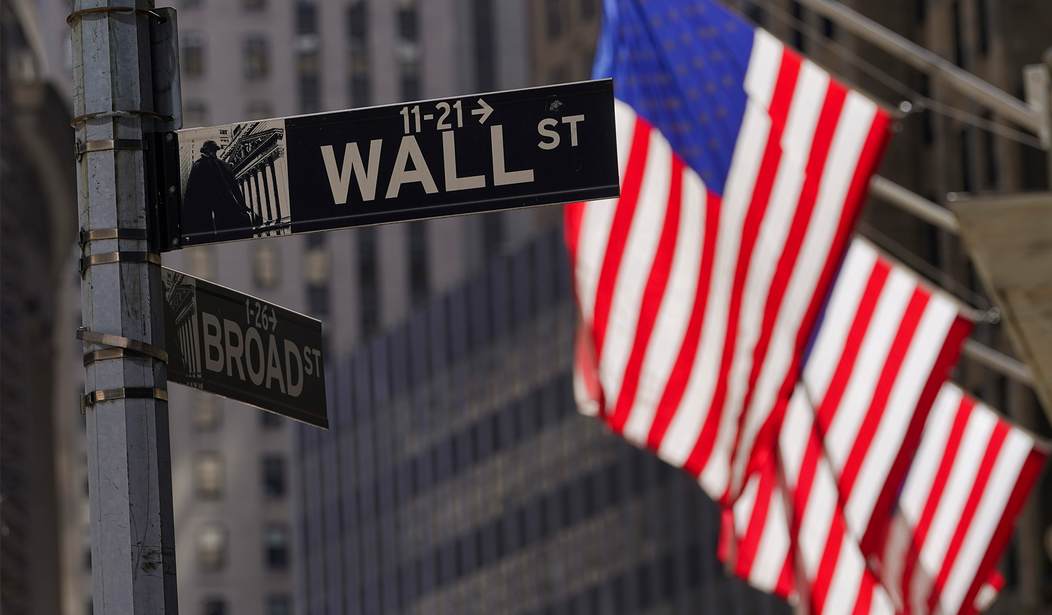Friday marked the final trading day on Wall Street of 2022 and stocks...did not end on a high note. In fact, it was such a low note that a year this sour hasn't been recorded since 2008.
From the beginning of 2022 until now, the Dow Jones Industrial Average fell more than eight percent. The S&P 500 lost nearly 20 percent over the year. Since January, the Nasdaq ended things down more than 33 percent. That puts all three indices at their worst year-end since 2008.
Wall Street records worst year since 2008, with S&P 500 finishing 2022 down nearly 20% https://t.co/rTUpi5ipJs pic.twitter.com/LdYdhAnDS3
— CNBC Now (@CNBCnow) December 30, 2022
Say, how's that "build back better" policy agenda working?
Among the biggest stock market losers in 2022 were internet and tech companies. Amazon ended 2022 down 49 percent, Facebook's parent company Meta dropped 64 percent on the year, and Google's parent company Alphabet lost nearly 39 percent. Apple dipped 27 percent, chip maker Intel fell 49 percent, and Microsoft dipped nearly 30 percent.
Entertainment company stocks, especially for those focused on streaming content, weren't unscathed either. Netflix ended 2022 down 51 percent, while the Walt Disney Company, due in part to a big loss in their streaming business, fell 44 percent.
Despite surging ticket costs — up some 30 percent from last year in the latest Consumer Price Index report — airlines also had a rough go in 2022. Southwest Airlines is facing a lot of trouble after stranding thousands of customers since Christmas, and they ended the year down 20 percent. American Airlines fell even more to lose 29 percent over the year while United Airlines was down 14 percent and Delta Air Lines lost 15 percent.
Recommended
Banks also saw tough year-end market results. Citi finished 2022 down 25 percent, JP Morgan Chase dipped 15 percent, Wells Fargo saw a decrease of more than 14 percent, Goldman Sachs dipped 11 percent since January, and Morgan Stanley fell nearly 14 percent.
Even with inflation, Americans have been spending big this year — racking up significant credit card debt in the process — but it wasn't enough to save retailers from tipping into the red in 2022. Walmart ended the year down nearly two percent, Target dipped 35 percent, Costco ended the year down 19 percent, Macy's fell 22 percent, Kohl's dropped 49 percent, and Nordstrom fell 28 percent over the year.
Some of the biggest winners, somewhat ironically given President Biden's all-out war on American energy and fossil fuels, were energy companies. ExxonMobil ended 2022 up 80 percent, Shell added 31 percent, and Chevron was up 53 percent.
Automakers, however, were not so lucky. Tesla was down 65 percent in 2022, Ford dipped 44 percent, and General Motors fell 43 percent.
BREAKING: The S&P 500 finished 2022 down -19.4% and the Nasdaq down -33.1% for the WORST year since the 2008 financial crisis — $18 trillion evaporated🚨
— 💸 F i n i m i z e (@finimize) December 30, 2022
It has also been the worst year since 1932 for the 60/40 portfolio - ouch.
Let’s hope 2023 is a better year! pic.twitter.com/iqHprzulov
Among the many negative impacts of Biden's economic policies hitting Americans and their wallets, 401(k)s have taken a significant hit, enough to make Americans nearing retirement age reconsider their plans. According to Fidelity Investments' review of more than 20,000 corporate retirement accounts earlier in December, the average 401(k) lost 22.9 percent of its value in 2022.
Despite the gloomy economic reality seen in the stock market, Biden says that everything is going swimmingly.
The president falsely claimed this year that the United States has the "fastest-growing economy in the world," a statement that even CNN fact-checked as dead wrong.
Biden also routinely claims that his "build back better" policy agenda is delivering results for the American people. While he wrongly seems to think his policies are having a positive impact, it might be the only thing he's being honest about. It's just that the "results" his policies are "delivering" include the worst year for stocks since 2008.

























Join the conversation as a VIP Member